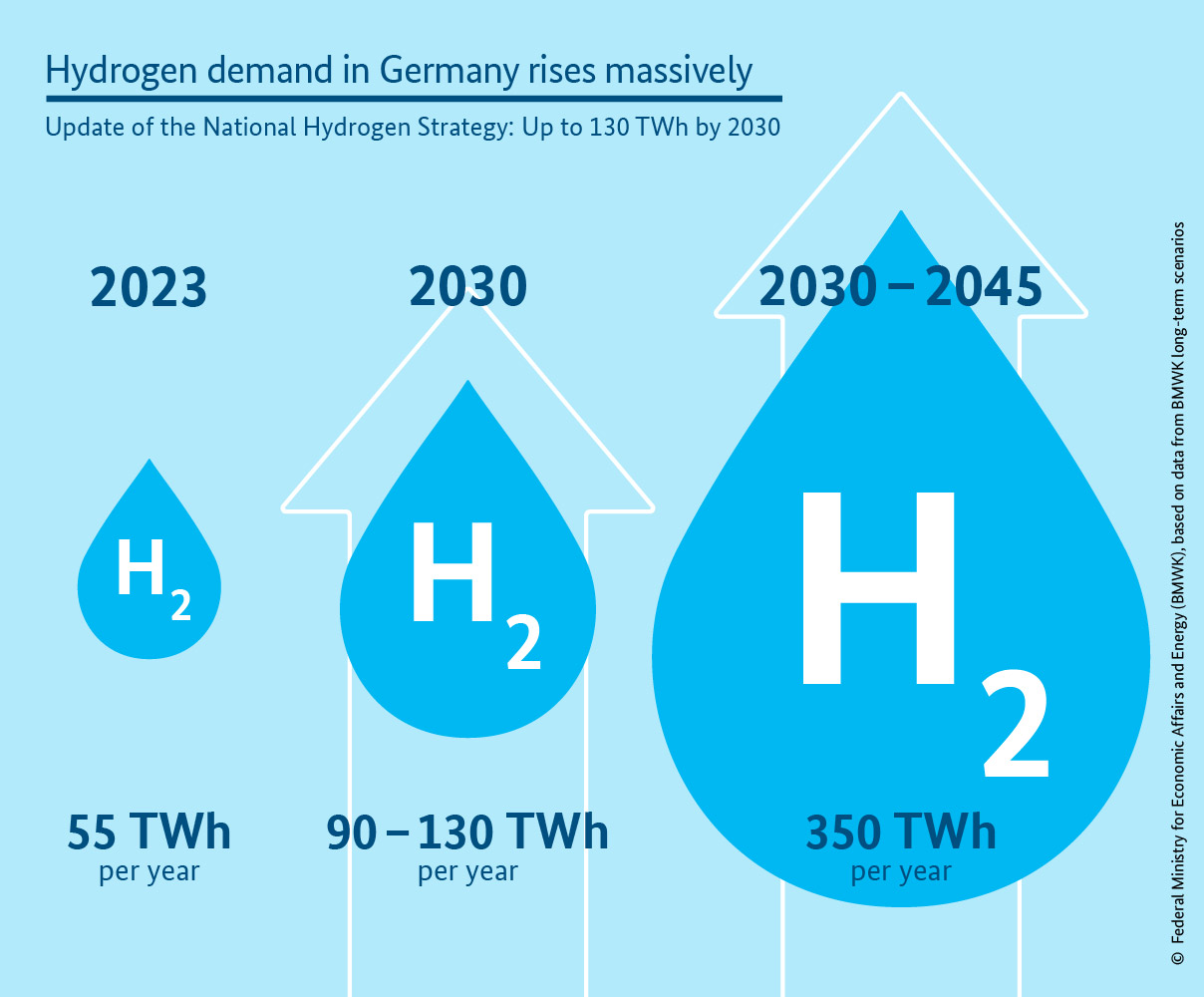 © BMWK
© BMWK
Demand for climate-friendly hydrogen increases significantly
In the future, demand for hydrogen produced in a climate-friendly way now expected to increase more significantly than originally thought. This development is also at the basis of the updated National Hydrogen Strategy, adopted by the Federal Cabinet at the end of July, in which the targets for hydrogen production capacities have been raised once again. For more information, please click here.
The 2023 National Hydrogen Strategy works on the premise that hydrogen demand in Germany will increase to 95-130 terawatt hours (TWh) by 2030. By comparison, the current figure is around 55 TWh. The Strategy also sets out how hydrogen demand is to become even greater between 2030 and 2045.
Global climate efforts increasing demand for hydrogen
Behind these predictions lie ambitious global climate efforts, which will cause the demand for hydrogen to skyrocket over the coming decades. According to the Federal Climate Change Act, Germany is to become climate neutral by 2045.
Hydrogen and its derivatives (gaseous or liquid energy carriers based on green hydrogen) will go on to play an important role in the transition to climate neutrality in energy-intensive industry in particular.
Hydrogen is especially important for sector coupling
In the future, green hydrogen will also become particularly important for sector coupling. If, for example, more electricity is produced from renewable energy than can be fed into the grid at any given time, it remains unused – otherwise the electricity grid would be become overloaded. However, if this electricity is converted into hydrogen via electrolysis, it can either be used flexibly or stored in the areas of industry, transport and buildings.
At the end of July, an important milestone for hydrogen use was reached when the European Commission approved a multi-billion euro subsidy for the decarbonisation of the steel industry in Germany. The plan is to build a large-scale plant for the production of “green steel”, replacing a blast furnace that has been in operation previously. This will enable the operator, Thyssenkrupp Steel Europe, to save up to 3.5 million tonnes of carbon emissions each year.
Commenting on the plans for the new plant, Federal Minister for Economic Affairs and Climate Action Robert Habeck said: “This project will also give a fresh boost to the hydrogen economy in Germany and Europe. Salzgitter AG also received funding at the end of May 2023. Other steel industry projects are still within the State aid approval procedure at the European Commission.”
Further information
- Publication by the Federal Ministry for Economic Affairs and Climate Action: Update of the National Hydrogen Strategy (German only).
- Press release by the Federal Ministry for Economic Affairs and Climate Action: European Commission approves largest decarbonisation project in Germany so far (German only).